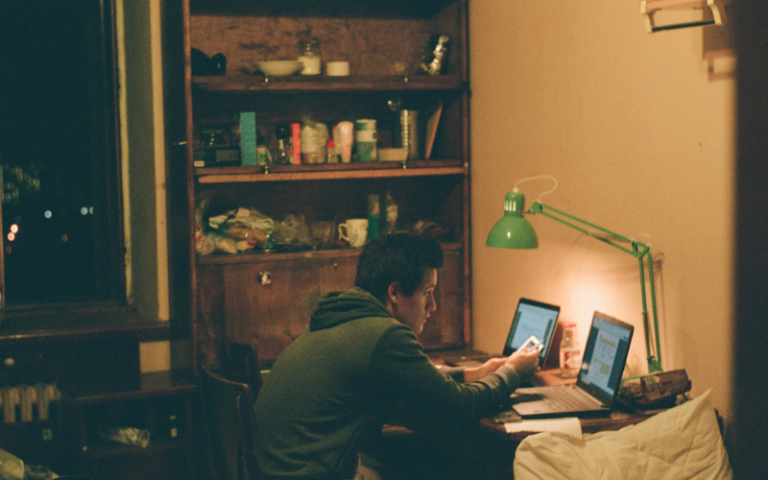Mental health - an impossible knot?
29 October 2021
Seeking support with your mental health and wellbeing can be overwhelming, but this is the first step to accessing the help you might need. Read on to find out third year student Allan's experience of accessing support from UCL's Student Psychological and Counselling Services.

During the third national lockdown, when I was alone in my flat during the coldest months of winter, I would spend hours lying on the couch, paralysed both physically and mentally, waiting for the dragging clock to finally tell me it was time for bed. I was isolated from friends and family, with no one to turn to for support as deadlines and a backlog of revision continued to pile onto me. I had no idea how to get myself out of this rut, and all I could do was search the vague phrase ‘UCL mental health’ on Google — it turns out, that was enough.
I was brought to the main page for Student Psychological and Counselling Services, which immediately walked me through the steps of determining what types of services were suitable for me, how to register for them, and what to do in between. I waited about three weeks after the initial contact from the service to see someone and I was provided with a 6-sessions long psychodynamic counselling course over Zoom which seemed reasonably quick considering the massive amounts of registrations they were likely receiving during the lockdown.
I logged onto the first session with skepticism and a raised eyebrow. Although I had been the one to reach out for help, I was still on edge about the idea of talking to someone about my mental health. The stigma surrounding discussions of mental health are especially damaging to those who need help — having heard those around me say that ‘if you ignore it for long enough, it’ll go away’ or that ‘mental health issues aren’t real, you just have to stop moping around and being sorry for yourself’ for all my life, I came to believe these claims. Even when I was finally receiving the help I’ve been needing for years, the feelings of self-doubt had already been ingrained deeply within me. In my first year, I had similarly enrolled to SPCS services, only to drop out by the second session because I wasn’t ready to engage in discussions about my mental health, because the knot of feelings seemed too vast and too impossible to untangle. Like my family had told me for years, I thought if I left the knot alone, it would untie itself.
But now, despite entering counselling with my guards up, my counsellor was incredibly patient and kind. They helped me recognise why I was reluctant to open up to them, and never pushed me to share more than I was comfortable with at any time. More so, they encouraged me to reflect on my own attitudes towards the topic of mental health, and gave me a space to acknowledge, and finally reconcile with, my own mental health issues. As I became more receptive to help, I started actively taking the advice of my counsellor, such as keeping an emotions-tracking diary in between sessions so I could identify what I was feeling and why. This process of self-reflection brought me back into myself, after I’d spent weeks in lockdown feeling like I was an outsider to my own life.
Of course, counselling isn’t the be-all and end-all. At the end of the six sessions, I wasn’t ‘cured’ of the issues I was struggling with, but I knew I had been equipped with the emotional tools to help me take them on. As lockdown gradually lifted and I was able to see my friends again, my support system expanded. I slowly coaxed myself back into a routine between work and leisure, rather than staring at the ceiling all day then rushing my deadlines through the night. No, counselling didn’t fix everything, but it did let me know that I had the strength to take the first step and reach out for help. Mental health issues never really shrink or go away, we just learn to grow around them with the right tools and support.
Nowadays, I draw. In reds when I’m angry, blues when I’m down, in vibrant pinks and greens when I feel refreshed by the weather. It’s my way of keeping an emotion-tracking diary, and it helps me get in touch with myself. I’m also more open to discussions about mental health with my friends, whether to blow off steam about the stresses of my day, or to in turn listen to them unload. We also share our experiences of counselling with the SPCS. Turns out, even among small circles of friends, our experiences with counselling varied widely, but we could all agree on one final thing: counselling made us realise that, despite some of us starting off more skeptical, in the end we all wanted to learn about and care for our own mental health. It is, after all, a crucial part of ourselves.
Allan Yeung, BA English
 Close
Close

